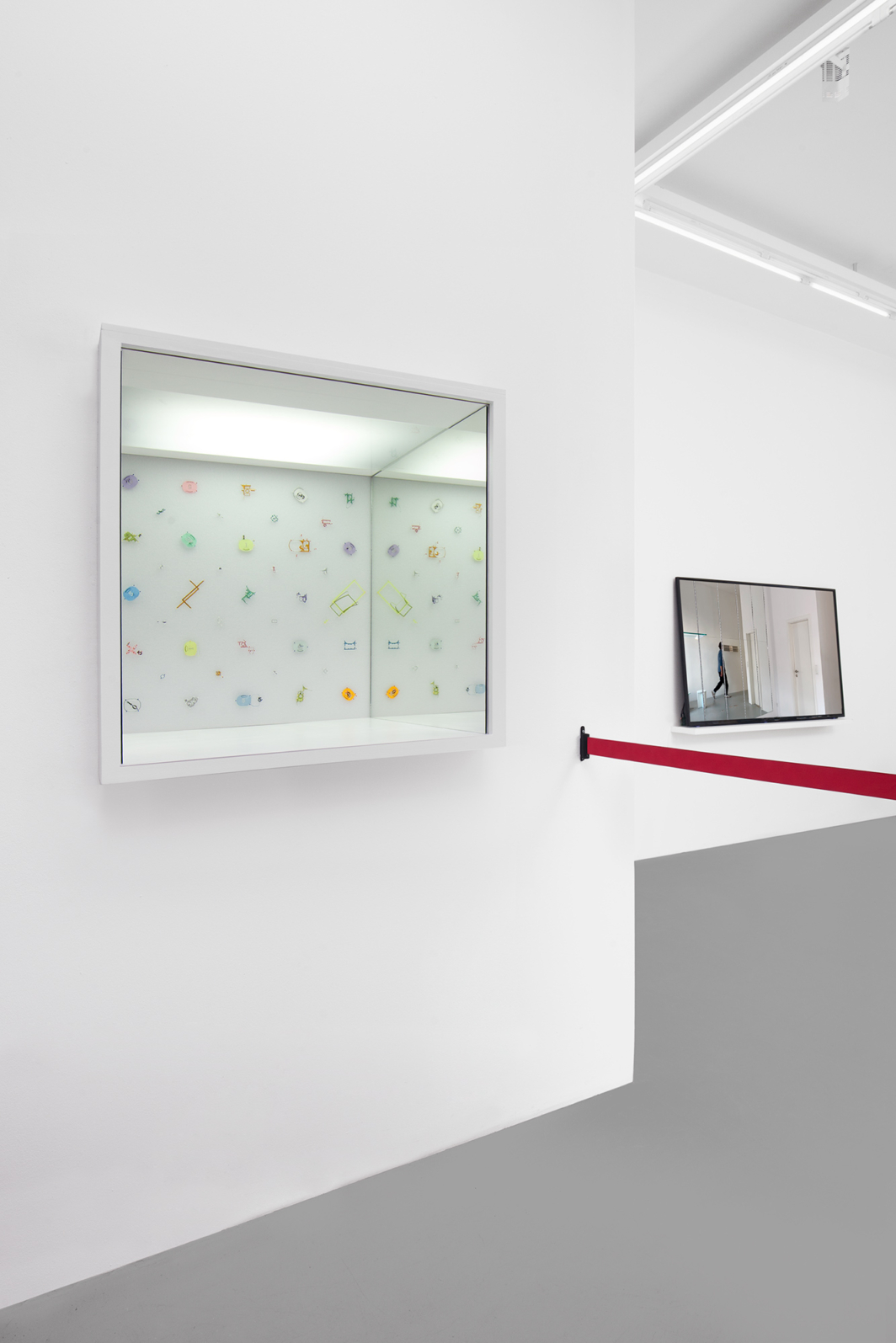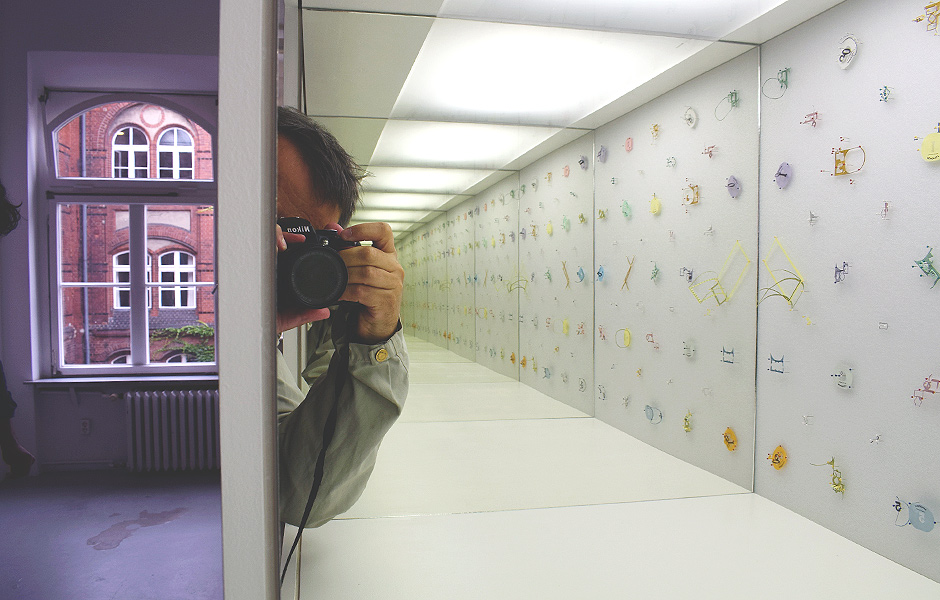Yuken Teruya
Monopoly Money
28.05 – 01.08.20 Images »


Yuken Teruya, Monopoly Money, installation view in Würfel, 2020
Monopoly Money
Money is a symbolic thing; all made of the same paper material, but the values change depending on the number that is printed onto it. And yet, though the material remains the same, we accept it for its printed value. While money is a placeholder for its respective printed value, Monopoly money symbolizes that very placeholder. But do they refer to the same kind of value? If you cut a 100 dollar bill into pieces, you would loose the value worth of nice dinner, but if you cut monopoly money, you dissect the idea of “exchange value” itself.
Monopoly money itself is a symbol of exchange value that drives even unmeasurable values. Monopoly money stands for the big money, the money that can’t buy a coffee, but that can buy Park Avenue. In discussing the meaning and symbolism of the money of financial districts and political economy, which is driven by narratives and believing, one can also apply the idea to other values such as cultural capitals, religion and historical value.
…
Yuken Teruya was born in Okinawa, Japan in 1973. He received his BFA from Tama Art University, Tokyo in 1996, and his MFA from the School of Visual Arts, New York in 2001.
He has shown at the Guggenheim, New York, the Biennale of Sydney, Greater New York 2005 at MoMA PS.1, Shanghai Biennale, Saatchi Gallery London, Moscow Biennale, Yokohama Triennale, the US Ambassador’s House, Tokyo, 21st Century Museum of Contemporary Art, Kanazawa, Japan, and in various other exhibitions in the United States, Europe and Asia.
His work is included in the public collections of the Museum of Modern Art, New York; The Guggenheim, New York; Flag Art Foundation, New York; the Charles Saatchi Collection, London; Ethnological Museum/Asian Art Museum Berlin, 21st Century Museum of Contemporary Art, Kanazawa, Japan; and the Mori Art Museum, Japan, among others.
